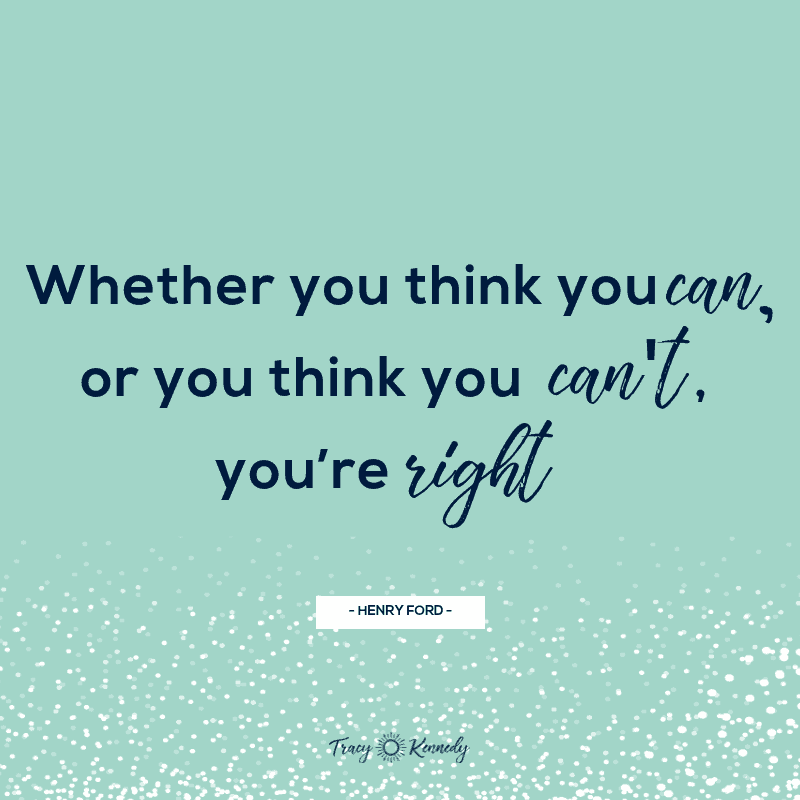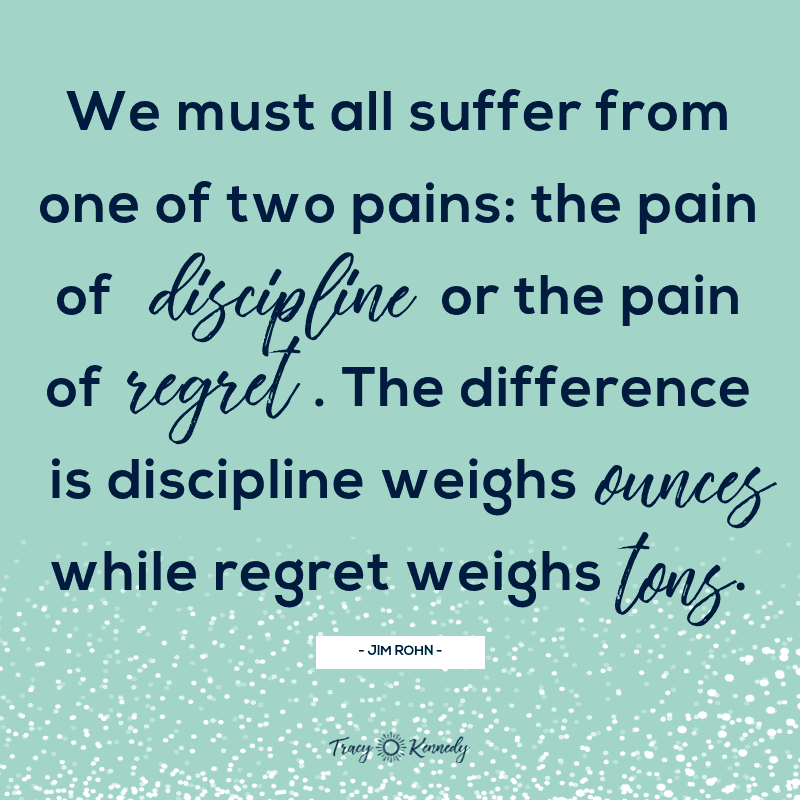Weight Loss
12 Habits to Up your Energy and Motivation
Do you ever feel tired of feeling tired? It’s like you get up in the morning and instead of feeling rejuvenated like the people from the TV commercials, you drudge the sound of your alarm and hit it like Ted Williams hits a baseball.
The worst thing is that you have work that needs to be done and you literally can’t afford to slog throughout the day. But there are ways how you can fix that. Since your body is a holistic being, the change in one area will affect a plethora of changes in the other ones. So that’s why these changes will make you feel energetic and motivated to push the day.
The changes affect one of the four crucial categories of every single person:
- Physical
- Emotional
- Intellectual
- Spiritual
So let’s start to make these changes if you feel a lack of energy and motivation:
Physical
1. Daily walks
Most of us do work which requires us to sit for a long time in uncomfortable chairs. The human body isn’t designed for that. So take 10-30 minutes every single day and just go for a walk. It will help your body stay healthy.
And if you think you don’t have time for that, you can invite a person with whom you need to have a meeting and go for a “walking meeting.” You basically go for a walk and have the meeting in that kind of setup.
There are no excuses which would prevent you from doing this activity – it’s light, easy, and short. But at the same time, provides the much-needed boost to energy for your body.
2. Take a nap
If you think that the kids in the pre-school are foolish to take afternoon naps, you are missing out on a great energy boost. A mere nap of 20-30 minutes boosts your focus, lets your “smart” brain refocus and prepare you for more work that you need to do.
All the biggest performers in the history took naps because their work required immense amounts of cognitive focus which drains you of energy. That’s why naps are important.
3. Stretch
Sometimes, all you need is to stretch your body for two minutes. When you’re stiff, especially if you don’t exercise in the morning, your body still didn’t wake up. So it’s important to let loose all the body parts and allow a non-disrupted flow of energy throughout it.
This will make the blood flow better, especially coming to your head which needs to focus on demanding cognitive tasks. So stand up from your chair and stretch yourself out because it will make you more energized. You can also try these simple stretches in your office.
Emotional
4. Eat what fills the head and the stomach
I didn’t put food in the physical part because for most of us, the relationship with our food is emotional and there is a big reason for that. The sugar-heavy saturated food makes us high at the moment but then comes the low and you lose all energy to do anything at 11 am which is absurd.
When you start thinking about food, start thinking about usability and pick the one which you can use the most. High fiber, protein food will fill your stomach but your brain as well and you won’t be tired after it.
5. Call a friend
Relationships play a major part in our lives. They are the main source of our happiness and our entire species is called a social animal. So when you get down and low, one of the best energy boosters is actually going into a social environment and just having a good time.
Social circles tend to pump the energy back into us even when we think we have no energy left for anything.
If you are at work and there are no “water cooler” talks around, simply call a friend on the phone and talk with him for a minute. Don’t message him, simply give a call and talk over the phone.
6. Play a game
Do you know that most CEO’s reported that they play games to be more productive. Sounds a bit paradoxical, but when you take into the account the nature of games, you understand the reasoning behind it.
Games are old as human civilization itself and even though we fail at around 80% of the games that we play, we still enjoy playing them.
Playing a simple game of, let’s say, Minesweeper can make you feel more productive and energized. So don’t think of games as energy wasters, think of them as energy amplifiers.
Intellectual
7. Play some music in the background
It doesn’t matter if it’s only white noise in the background or classical music or pop songs, music does wonders to us regarding energy and motivation.
You know what works best for you and during which time and this only serves as a reminder that sometimes you need some music in life to make magic happen. Here’re some nice motivational songs you can try: 30 Inspirational Songs that Keep You Motivated for Life
P.S. I was listening to Dragon Ball- Cha La (German version) while writing this. There is just something super motivating, inspiring, and energizing in that song for me which forces me to write until my hands bleed.
8. Books
The stimulus provided by books help you regain focus for a longer period of time. So you should start reading some (if you already don’t).
In the beginning, people can’t read more than a couple of pages of a book without falling asleep. That’s perfectly fine because your brain is readjusting to the focus necessary to read through tens of pages of a book.
After a month of reading books daily (20 pages per day will suffice)((The Curious Reader: The Proven and Easy Way to Read 47 Books A Year)), it will be way easier for you to stay focused and energized at work because you will have trained your brain to stay sharp and focused for a longer period of time.
9. Change frames and perspectives
Frames are a powerful weapon in hands of people who know how to use them. When you encounter a problem or a challenge which makes you stop before you even start, the problem isn’t in the task itself but in the way you approach (frame) that kind of task.
Doing a gym routine of six exercises with 4 repetitions each becomes way easier when you think about it in terms of levels in a game. You start a quest to level up your physical attributes of strength and stamina, and each rep brings in more experience which makes you level up at the end of the gym routine.
Whenever something brings your energy down or makes you feel unmotivated, try to look at it from a different angle.((Big Miles: 11 Proven Ways On How To Manage Stress At Work)) When you change your relationship with a problem, it stops being a problem.
Spiritual
10. Meditation
Taking just a minute to breathe in and out, focusing and letting go of your thoughts through meditation and mindfulness can bring your energy levels back up in an instant.
Meditation has been used for thousands of years as a stress reliever, happiness bringer, and energy booster. If you are working in a crowded office, find just a minute of quiet and alone time to meditate and you will see major differences in your energy and motivation levels.
11. “Get in zone” ritual
Most people today call it “flow”. It’s about finding the sweet spot between boredom of menial tasks and the anxiety of tasks for which we are incompetent.
When you get yourself in the zone, you distort time and gain massive focus and energy to do anything which is in front of you. Runners use the term “runners high” for this.
I used to be a gamer and I could sit in the chair for 10 hours playing the game without moving a muscle or even flinching. The immense focus and energy I summoned for that were incomparable with everything else in my life.
It’s not that we don’t have the energy and motivation, it’s just that we don’t have a clear path of summoning it (yes, I just used a gamer reference). Flow provides us with that path.
12. The power of now
Whenever we’re doing something, we are always thinking about the next thing that we have to. This makes us constantly chasing something which is in the future and is never quite here.
You are working on a task for a client at the moment, but you’re constantly thinking about the meeting that you have in three hours.
When you come to the meeting, you are constantly thinking about having to go to the gym in two hours.
When you come to the gym, you are constantly thinking about dinner with your wife and kids.
When you start dinner with your family and kids, you constantly think about the report that you need to send before you go to bed.
When you get in bed, you think about the things that you need to do in the morning as soon as you wake up.
And this perpetual cycle keeps going and going until you are out of breath, energy, motivation to do anything.
The point is to stop and be in the moment — enjoy the power of now. It provides so much rejuvenation to simply look at a tree and think about nothing except that tree. When you live in the moment, it not only brings energy but conserves the one which you would spend thinking and worrying about the future things that you need to do.
Small Changes Bring Big Results
All of these changes don’t seem like a big deal when you read about them. But in practice, they make massive results especially if you can combine them. The big results come only from an accumulation of small things so the sooner you start working on them, the sooner you will see the results in bigger energy levels and motivation.
The small changes in the physical domain include taking daily walks, napping, and stretching.
The small changes in the emotional domain include eating the right kind of food, talking with friends, and playing games.
The small changes in the intellectual domain include listening to music, reading books, and changing frames/perspectives.
The small changes in the spiritual domain include meditation, getting in the zone/flow, and being the moment (having the power of now).
Small changes, big results. What are you waiting for?
Why You Always Fail Your New Year’s Resolution
Every year, millions of people take the opportunity to use January 1 as a fresh start.
The ancient Babylonians are recognized as the first people to make New Year’s resolutions, some 4,000 years ago.((History: History of New Year Resolutions)) However, instead of setting goals for themselves, they made promises to the gods, hoping those gods would then ‘bestow favor’ on them for the coming year.
In our home, my husband and I sit down every New Year to set our goals and intentions for the year. When the kids became old enough to participate, they started joining us for this important ritual.
Setting goals is the ‘easy’ part; but we all know that the execution of our resolutions is often easier said than done.
In fact, check out these statistics:
- One widely quoted statistic notes that 92% of people don’t follow through on their resolutions.
- Another showed 80% of people give up on their resolutions by the second week in February.((US News: Why 80 Percent of New Year’s Resolutions Fail))
- A third study identified that 88% of those who set New Year’s Resolutions fail, even though 52% were confident of success at the beginning.((Rick Lewis: Your New Year’s Resolution: How To Stop It From Failing Miserably))
- One identified that 25% of people ditch their goals in the first week!((Statistic Brain: New Years Resolution Statistics))
Regardless of which of these studies is right, we can all agree that the overwhelming conclusion is this:
MOST people don’t follow through.
7 Reasons Why New Year’s Resolutions Fail
Here are 7 reasons why so many New Year’s Resolutions fail and more importantly, how to set yourself up for success in the new year:
1. Your Goals Aren’t Specific Enough
“I want to get healthier” is a great mission, but not a great goal. The universe responds to specificity and so does your brain.
When things aren’t specific enough, or you don’t have a clear enough vision of what you want, your mind doesn’t know what success looks like, and it’s easier to get distracted, demotivated and lose energy.
Set Yourself up for Success:
Get specific. Make sure you have a clear vision of what you want and what success looks like.
You want to get healthier? What does that mean? Do you want to exercise three times a week? Eat better? What does that look like? No more sugar, meatless Monday, eight fruits and vegetables a day?
You want to lose weight. How much? By when? Get specific on your goals so you know exactly what it would mean to achieve them.
Make your goals SMART: Specific, Measurable, Attainable, Relevant, Timely.
2 No Accountability
How much more likely are you to follow through on something when you’ve committed to someone else – your boss, spouse, friends?
The founder at AllTopStartups, Thomas Oppong wrote is well in his article on Medium:((Thomas Oppong: This is How to Increase The Odds of Reaching Your Goals by 95%))
“When you are accountable to someone or a group of people for doing what you said you would do, you can easily get stuff done because you engage the power of social expectations.”
Set Yourself up for Success:
Find an accountability partner. Hire a coach to keep you on track and honest. Make a commitment to someone else.
I have a good friend that joined a “Race for a Cure” team so she was accountable to both the team, the cause and the result.
3. You Lose Focus
Did someone say ‘squirrel!?’ Committing to having a new adventure each month is a great resolution (one of my good friends had this one last year).
In January, you go skydiving,…Awesome! February, you head out on a kayak…Great work! But then things get busy, life gets away from you, and suddenly that exciting resolution finds its way to the back burner of your mind.
I read one statistic that said 23% of people forgot about their resolutions. Forgot!
Set Yourself up for Success:
Write down your resolutions. Studies have proven that those who write down their goals accomplish significantly more than those who do not. In fact, you are 42 percent more likely to achieve your goals if you write them down. Writing your goals down not only forces you to get clear on what is that you want to accomplish, but doing so plays a part in motivating you to complete the tasks necessary for your success.((Inc.: This Is the Way You Need to Write Down Your Goals for Faster Success))
Then, place them somewhere you can see them and review them regularly. Place your goal somewhere you see it: your bathroom mirror, your calendar, a reminder on your phone.
My husband and I have date nights throughout the year to check in on our goals and see how we’re progressing. You can also use other ‘milestone events’ such as birthdays, anniversaries and holidays as a time to review your resolutions.
Create a daily ritual around your resolution. My good friend, and owner of HeySoul, Jessie Gardner, talks about making small, consistent, simple, doable actions. Build these into your normal life and make them something you look forward to doing. Your cup of tea in the morning, a comfy meditation pillow, your favorite app. This creates a positive experience and begins to rewire the brain to seek that experience again and again.
“Moments make up your days, days make up your year.” Jessie Gardner, Founder, HeySoul
4 Your Environment Is Not Conducive to Your Goals
In my work as a health coach, this shows up more than any other type of coaching work I do. One of the biggest challenges my clients face is trying to make a change in an environment that is not in sync with the changes they’re trying to make.
For example, you want to stop eating sugar, but your partner stocks the house full of yummy sweet treats. Or, you want to meditate daily, but every time you go to do so, your family laughs at how woo-woo you’ve become. Maybe you’re trying to take less on and learn to say no more often and your partner keeps committing you to every invitation you get. Perhaps you want to walk three times a week, but it’s the winter in England and it’s pouring rain every day.
I had one client who wanted to stop eating in the evenings. However, every night when she went to watch TV with her partner, her partner grabbed a big bag of potato chips or pint of ice cream. Sure, she had willpower, but understandably this was a real struggle and made it much harder to stay disciplined.
Set Yourself up for Success:
Short of ditching your partner, abandoning your family and moving to Hawaii, what can you do when your environment is not conducive to your goals?
First, aim to get your partner or family on board, even with small changes.
Not a chance? Set up systems that allow you to get what you need. Meditate when they’re not home, stock your cupboard full of your favorite teas for when you watch TV. Join the local gym, get an exercise app, purchase a second-hand treadmill.
It’s NOT easy, but there ARE always ways to make it work.
5. You Don’t Really Want It, or You Don’t Know Why It’s Important
We often make resolutions based on what others think we should do or perhaps what we think we should do. But if you don’t really want to do it, the likelihood of success becomes very low. YOU must want to lose the weight, quit smoking, save money. Someone else can’t want it for you. In fact, as humans we have a need for autonomy and freedom, which means if someone tells you should, the likelihood of you doing it becomes even less!
Performance expert and coach, Jay Henderson says this,
“If you set goals based on things that aren’t a priority for you, they’re just not going to happen. But here’s the deal. If you set your goals based on what IS important to you, you probably won’t even need to write them down. You’re going to think about them all the time and they’re just going to happen”
Set Yourself up for Success:
Identify what YOU want and WHY it’s important to you.
Learn your why so you will always stay motivated! This article can help you:
How to Get Motivated and Be Happy Every Day When You Wake Up
6. You Underestimate What It’s Going to Take
Most people underestimate what it’s going to take to make their goals a reality. They get excited about an idea, but the more they see the reality of what it’s really going to take to get there, the more they lose steam.
What happens to your mind when it thinks something is too hard or believes it’s going to take too long? Exactly.
Set Yourself up for Success:
Identify what you need to do to achieve your goal. Goals without actions are just ideas.
Create a plan of action. Better yet, get someone else who has done exactly what you’re trying to do help you.
If you want to lose 10 lbs., how do you plan on losing it? How long might that take? What’s the step-by-step approach? Put pen to paper and figure it out.
Another tip: Keep it simple.
Identify the one thing that will have the most significant impact or make the biggest difference for your life. You don’t need to make eight resolutions. Make one. The one. And commit. Put your energy and focus into making it happen. Small changes eventually add up to huge results.
Take my client Robin. Due to her fibromyalgia, she had such terrible pain in her feet that she couldn’t tolerate anything on her feet other than fuzzy socks. But she had a goal to wear this pair of moccasin slippers out into the world. She started physical therapy, did desensitization work and slowly extended the amount of time in her slippers.
And then one day I got the best email from her:
“…this week is the first time I’ve worn the brown slippers out into the world! I literally started by just keeping my feet in them for 15 seconds, and building from there on days when I thought I could.”
See? Small changes, big results.
7. The Resolution Is out of Sync with Who You Are
Our identity – who we believe ourselves to be – is very powerful. A former colleague of mine tells the story about a client, “Big Dan,” who came to him wanting to lose weight.
Big Dan had a goal to lose 10 kilos, but “Big Dan” was a large man who ran Big Dan’s Meat Shop. His entire identify revolved around his size. Of course, every time he tried to lose weight he didn’t. He saw himself as Big Dan, as did others. In order to lose the weight, he needed to shift his entire identity.
Set Yourself up for Success:
Connect with your identity – who you are – and how you see yourself.
If you see yourself as athletic and strong, the likelihood of you doing that triathlon are high.
But if you have always seen yourself as nonathletic and clumsy, guess how that’s going to play out? This is not an easy shift, to change your identify. It requires awareness, understanding and some deep work. Often this is work that needs to be done with the support of a good therapist or coach.
But once you switch your perception of yourself, it’s amazing how easily (and quickly) things will happen from there.
5 Ways to Follow-Through on Your New Year’s Resolutions This Year
Serious about achieving your goals this year? Read on for 5 more ways to help you follow-through on your New Year’s resolutions and make this your best year yet.
1. Practice Self-Reflection
It’s important to spend time reflecting before you jump into setting your goals and resolutions. Self-reflection is about taking a step back and reflecting on your life, behavior and beliefs. It’s a valuable and powerful practice. You may have heard the saying,
“Insanity is doing the same thing over and over and over again but expecting different results.”
Yet, that is what so many of us do. This year, before your set your resolutions, take a step back and reflect on what’s working and what’s not. Identify what to keep and what needs to change. Seek to understand yourself at a deeper level and identify what might get in the way. Take some time to reflect on the last year.
To read more about self-reflection, get access to a step-by-step process; and valuable strategies to make your self-reflection time most productive, check out this guide:
How Self-Reflection Gives You a Happier and More Successful Life
2. Remember, There’s No One-Size-Fits-All Approach
Everyone will tell you the best way, or the right way for how to do something. There’s tons of different articles, pieces of advice and strategies about how to set your resolutions. Here’s the one thing that is absolutely and always true:
You must find a process that works for you.
While we have similar human needs (love, connection, significance), we also have different innate wiring, which means what works for someone else may not work for you.
Think about what you know about yourself as you think about strategies.
What works for you to keep your goals? Think about a goal, resolution or commitment you made that you DID keep.
Why did you keep it? What were the factors at play?
This will give you some great insights into which one of these might work for you.
3. This Is About the Inner Game
Your mindset and beliefs override everything. Yes, it doesn’t’ matter how SMART your goals are, if you write them down and who you’re accountable to if you haven’t looked from the inside out.
Most of our problems are internal, and so are the solutions. Following through on your resolutions is more about your mindset, beliefs and identity than anything else.
If you don’t wholeheartedly believe you can achieve something, it won’t happen. You’ve probably heard the saying from Henry Ford,
Our minds are very powerful.
In fact, there’s an amazing story of an orthopedic surgeon in England. Essentially, he performed surgery on patients with osteoarthritis of the knee. But in some of his patients, he did NOT do surgery at all. He put them under, made the incision, spent the same amount of time in the operating room and then sewed them back up. They thought they had the surgery. And guess what, all his patients reported improvements and reduction in pain.(You can find out more about the story here.) Our minds are powerful, hence the placebo effect.
That means with your resolutions, you must start with the belief that it’s possible. Look at your belief system.
What belief is getting in the way of your success? That goal you’ve been trying to achieve: do you believe you can? What do you believe (or not believe) about yourself that might be getting in the way?
When you play the inner game right, then you’ll see progress, fast.
4. Be Nice to Yourself
Life is full of setbacks, obstacles and failures. There’s no reason why your New Year’s Resolutions should be any different.
So, you wanted to eat healthier and you just messed up and had a donut with your kid. So what? Try again.
Don’t use it as an excuse to completely abandon the goal you had set for yourself. Failure is all part of learning and when you’re trying to implement any new habit, you’re going to slip back at times.
Be nice to yourself. You’re doing the best you can. Focus on moving forward. Acknowledge your wins and successes. And don’t lose sight of that goal.
5. Finish Strong
Part of setting yourself up for the new year is finishing this year strong.
If you let go of everything, eat crap, stop exercising, drink too much, eat too much and pile on the stress, how are you going to feel?
If you wake up January 1 hungover, 10 pounds overweight and exhausted, what impact will that have on your ‘fresh start’?
Aim to finish this year strong. Take control. Be intentional with your goals.
I’m not saying you can’t enjoy a glass of wine or a couple pigs in a blanket, but if you’re thoughtful about what you want in the New Year, you can start setting yourself up for success now.
Like any athlete, they don’t wait until race day to eat well, meditate and get in the zone. They practice, train, and get ready for game day well before it happens.
Get Ready for the New Year
Now, let’s be real. Whatever you set out to achieve, it’s going to take commitment, effort and discipline. There’s no shortcut to success. Jim Rohn once said,
Don’t let another year go by filled with regret of what you wish you had done.
2019 is going to be awesome, because you are going to make it that way. I know you can do it.
THIS is your year. This is your time.
Start with a new attitude, some great strategies and a true belief that what you want is possible. It’s going to be hard work, but everything that’s worth accomplishing always is.
You got this.
Expect great things.
Happy New Year!











